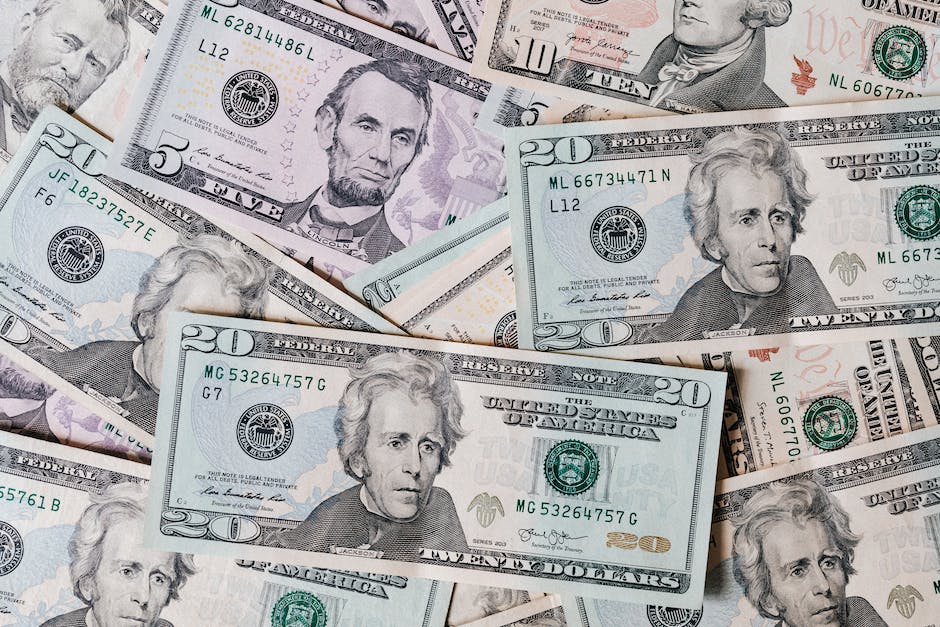BetterYouJourney.com is a participant in the Amazon Services LLC Some of the links in our posts are affiliate links. Click here to see full Disclosure.
Transforming lively dialogues into a lucrative venture doesn’t solely rely on serendipity. In the booming sphere of podcasting, enthusiastic speakers and nimble-minded entrepreneurs are always on the lookout for ways to monetize their passion. This insightful exploration into ‘Podcast Monetization Secrets: Turn Talk into Cash’, aims to elucidate the underlying dynamics of turning engaging audio content into a steady revenue stream. From dissecting the concept of podcast monetization and its relevance, to appreciating the art of ‘Talk to Cash’, this article breaks down the matter in an incisive, comprehensive manner.
Understanding Podcast Monetization
Podcast Monetization
Podcast monetization refers to the process through which podcasters generate revenue from their podcasts. This can be through various means such as sponsorships, donations, subscriptions, and advertisements. It capitalizes on the podcast’s audience and the brand recognition it has. A well-monetized podcast can contribute significantly to its creator’s income stream, therefore serving as a motivator for podcasters to consistently create engaging content.
Talk to Cash
The concept of ‘Talk to Cash’ essentially means turning your spoken words into a revenue stream. Every time you create and publish a podcast, you’re essentially creating an asset that could potentially generate income for you.
The Roles of Podcast Monetization
Monetizing a podcast serves three key roles. One, it provides the funds needed to sustain the podcast. Maintaining a podcast isn’t free. There are hosting fees, equipment costs, and time investment involved. Through monetization, these costs can be covered. Two, it offers a means of compensation for the time and effort put into creating the content. And three, it can turn a passion project into a profitable venture, which is the ultimate goal for many podcasters.
The Importance of Podcast Monetization
The importance of podcast monetization cannot be overlooked. While podcasting may start as a hobby or a passion project, the time and effort invested in creating and promoting content can become overwhelming. Without financial compensation, many podcasters may struggle to maintain the same level of commitment and quality in their content. Therefore, monetization plays a critical role in the longevity and success of a podcast.
Methods of Monetizing a Podcast
There are various ways to monetize a podcast. The most common methods include sponsorships and advertisements. These typically involve partnering with businesses or brands that want to advertise their products or services to your audience. Another common method is through donations or crowdfunding, where listeners contribute financially to the podcast. Podcasters can also opt for paid subscriptions or premium content, where listeners pay a fee to access exclusive content. Lastly, podcasters can sell merchandise or other products related to their podcast or brand.
Decoding the Process of Podcast Monetization
The journey to monetize a podcast is robust and demands a thought-out strategy. The primary course of action for podcasters is to build a substantial audience base, create content that adds value, and engage effectively with their listeners. After establishing these fundamental components, podcasters can delve into diverse monetization tactics, selecting what aligns best with their needs. Ultimately, the secret to successful podcast monetization is grounded in the delivery of valuable content that listeners find worthy of their investment.

Different Models of Podcast Monetization
Deep-Insights into Podcast Monetization Models
Podcast monetization serves as a mechanism to financially reward the creative efforts of podcasters through a slew of strategies. In essence, a podcast is metamorphosed from being a sheer content platform to a lucrative entrepreneurial venture. This transition is achieved through various channels that extend beyond traditional advertising. These include commercials and sponsored content, subscription-based models, selling merchandise, and listener contributions. Each of these models offers unique profiting potential, feasibility, and harmony with diverse podcast genres.
Commercials and Sponsored Content
One frequently used method of podcast monetization is through commercials and sponsored content. These are essentially paid spots within the podcast where an advertiser’s information is shared. It is much similar to traditional commercial advertising on radio and television broadcasts. Companies pay podcasters to introduce their products or services during the episode to their listener base.
The profitability of this model depends on the size and engagement of the listener base. A larger, more engaged audience generally commands higher advertising rates. Sponsored content tends to result in higher profits as companies value the in-depth exposure and potential customer engagement that comes with it. This model offers a sustainable way of earning consistent income, but is best suited to podcasts with a substantial audience and influencers in specific niche markets.
Subscription Models
Another popular podcast monetization option is the subscription model. This strategy reduces the podcast’s dependency on advertising revenue by charging listeners for premium content. Typically, subscribers have access to exclusive content, ad-free episodes, or early access to regular episodes.
The profitability of the subscription model hinges on the value offered by the premium content and the audience’s willingness to pay. This model provides a steady stream of revenue and relies less on external entities like advertisers, making it a sustainable long-term option. This revenue stream is flexible for a wide range of podcast genres and is ideal for podcasts with loyal listenership that sees value in the exclusive content or other benefits offered.
Merchandise Sales
Merchandise sales involve selling products that are linked to the podcast. This can include an array of items, from branded apparel, books, or any other physical or digital product linked to the podcast’s theme or content. This method provides an additional income stream and also promotes the podcast through the merchandise.
Success of this model is reliant on the size of the podcast’s fan base and their engagement with the podcast. It can be a highly profitable model if executed with care, but production costs and inventory management may influence its sustainability. This monetization method suits podcasts with a large, engaged audience who have a strong affinity with the brand.
Direct Support through Listener Donations and Crowdfunding
One approach to podcast monetization emphasizes direct engagement with your audience, leaning heavily on listener donations and crowdfunding. Using platforms like Patreon, Kickstarter, or GoFundMe, podcasters can solicit support directly from their dedicated fan base. While this method can be unpredictable, it can also be a substantial source of revenue when the connection between creators and their audiences is strong.
This strategy is reliant on the goodwill and active involvement of your podcast’s fan base. Therefore, it is a bit risky in terms of sustained income. However, if you’re a creator with a passionate following that greatly values the content you provide, monetizing through listener donations and crowdfunding may be the perfect route for you. This avenue is particularly effective for niche podcasters who might have a smaller, but extremely loyal, listener base.

Steps to Monetize a Podcast
Prioritizing the Creation of Valuable Content
To successfully monetize any podcast, your first priority must be crafting high-quality, valuable content that will consistently attract and retain listeners. This requires developing episodes that are not just informative, but also entertaining and directly related to your audience’s interests. Stand out from the multitude of similarly-themed podcasts by making sure your content is distinctive and unique.
To achieve this, utilize your specialist knowledge, inject your unique insights, or incorporate your personal experiences to create exclusive content that your audience can’t find anywhere else. Crafting this level of exceptional content creates a strong foundation on which to build your monetization strategies.
Building an Audience
Monetizing a podcast isn’t possible without a robust, devoted listener base. This audience can be built by engaging listeners through social media platforms, networking with other podcasters, or leveraging an existing business or brand. It’s also important to engage with your audience by responding to their comments or questions, encouraging listener participation, and embedding interactive elements within your podcast. Keep in mind that growing an audience requires patience and consistency. Regularly releasing new episodes at a consistent schedule can also bolster your listenership.
Determining the Best Way to Monetize
Once you have a solid listener base, determining how to monetize your podcast will depend on what suits your content and audience. Some popular podcast monetization methods include advertising and sponsorships, listener donations, memberships or subscriptions, merchandise sales, and live events. You might consider multiple streams of income to increase your podcast revenue.
Implementing Monetization
After choosing your monetization methods, it’s time to implement them. If you’ve chosen advertising, you can start incorporating ads into your podcast episodes. These can be pre-recorded ads, host-read ads, or branded content. Consider working with a podcast advertising network if you find it challenging to secure advertiser partners.
If crowdfunded support was your choice, platforms like Patreon and Ko-fi can give your fans a way to financially support your show. Setting up membership tiers with various perks can encourage more donations. Alternatively, selling merchandise or live event tickets can also be done via your podcast’s website or through third-party sites like TeeSpring or Eventbrite.
The implementation of your chosen strategy should always safeguard the listener’s experience. If implementing ads, be sure not to overwhelm your listeners with too many advertisements. If offering memberships, always maintain a basic level of free content to engage and attract potential new listeners.
Regular Monitoring and Adjustments
The journey towards podcast monetization requires more than just a one-time setup. You need to keep a close eye on how effective your chosen strategies are, and make necessary amendments as and when required. Podcast analytics serve as a useful tool in this regard, allowing you to identify which episodes are attracting the highest number of listeners, pinpoint the moment when listeners tend to lose interest, and determine which call-to-action prompts garner the most response. Such insights can steer your decisions in the right direction and fine-tune your monetization efforts for the better gradually.

Case studies of Successful Podcast Monetization
A Closer Look at Joe Rogan’s Monetization Strategy
One of the epitomes of successful podcasting is Joe Rogan, renowned stand-up comedian, TV host, and UFC commentator, with his venture “The Joe Rogan Experience” (JRE). In May 2020, an exclusive licensing agreement secured by Rogan with Spotify for JRE was reported to be worth a staggering $100 million. A significant portion of Rogan’s monetization blueprint is underscored by advertising. Given the monumental scale of his podcast’s listenership, advertisers scramble for the available ad spots. Additionally, Rogan has smartly diversified his revenue stream by selling merchandise linked to his podcast.
Case Study 2: My Favorite Murder
“My Favorite Murder” is a hit true crime podcast co-hosted by Karen Kilgariff and Georgia Hardstark. The podcast has successfully monetized its content through live shows, merchandise, and a fan club. Live shows provide a more intimate experience for fans and generate significant revenue. The fan club, dubbed the “Fan Cult,” gives members access to exclusive merchandise and pre-sale tickets for live shows for an annual fee. Kilgariff and Hardstark have also landed a publishing deal, turning their popular podcast into a profitable book.
Case Study 3: The Daily from The New York Times
The success of “The Daily” has prompted other news organizations to launch their own podcasts. “The Daily” garners over 2 million listeners a day. This success has attracted significant advertising revenue, making the podcast a major moneymaker for The Times. They have also bundled the podcast with their digital subscription plan, thus increasing the number of subscriptions.
Unlocking the Secrets of Monetization
Success in podcast monetization is largely driven by the application of diverse strategies and understanding common trends.
- Consistent, Superior-Quality Content: All top grossing podcasts maintain a consistent rhythm of high-quality content to enthrall their audiences. This base serves as the backbone in attracting advertisers who bring in revenue.
- Revenue Stream Diversification: Relying on a single income source poses risks. The smart move is to diversify by selling merchandise, arranging live shows, or introducing subscription models.
- Potent Listener Engagement: Successful podcasters not just present content but also engage with their listeners. Such engagement builds stronger loyalty, increases attractiveness to advertisers, and helps podcasters adhere to evolving audience taste and produce optimized content.
- Strategic Alliances and Sponsorships: Partnering with platforms like Spotify and obtaining sponsorships provide a double advantage. It not just injects additional funds but pushes the podcast to a wider audience base.
- Intelligent Advertising: Selection of advertisers and smart integration of advertising content ensures compatibility with the podcast theme. This enhances the listening experience and increases the probability that listeners would pay heed to the advertiser’s offerings.
Despite the podcast industry still being in its nascent stage, these tactics have proven successful in generating substantial revenue.

Common Pitfalls in Podcast Monetization and How to Avoid Them
Decoding Podcast Monetization
Podcast monetization is the art and science of optimizing your podcast content to generate revenue. It involves a myriad of channels such as sponsorships, donations, merchandise sales, affiliate marketing, paid advertising, live event tickets, and subscription models. Irrespective of the method chosen, the key to successful monetization lies in knowing your audience well, proper strategic planning, and applying the appropriate monetization tactics.
Common Pitfalls in Podcast Monetization
One common pitfall among podcasters is the lack of a clear monetization strategy when starting their podcast. They may create content impulsively without understanding the financial potential or lack of their audience. Fail to plan, and you plan to fail.
Another common mistake is failing to understand the audience. Podcasters may not invest time to analyze who their listeners are, their preferred content, and their willingness to support the podcast financially. This failure to understand listeners’ needs and interests makes it difficult for podcasters to create high-value content that listeners are willing to pay for.
Podcasters also tend to over-rely on one revenue stream. Many podcasts start by relying solely on ad revenue. While sponsorships and ads can bring in income, diversifying your income stream can provide a financial buffer against changes in ad rates and sponsorship deals.
How to Avoid Common Pitfalls in Podcast Monetization
To avoid these pitfalls, podcasters need to spend time researching and planning their podcast monetization strategy. This includes defining clear objectives, understanding the target audience, and aligning the monetization strategy with these factors.
Podcasters should invest in understanding their audience’s needs and behaviors. Use analytics tools to collect data on listener demographics, content preferences, and interaction patterns. With this insightful data, podcasters can create high-value content that captivates the audience and attracts potential sponsors.
A successful monetization strategy does not rely solely on one revenue stream. Podcasters should explore alternative monetization methods like affiliate marketing, merchandise sales, and donations. Selling merchandise with the podcast’s branding or using affiliate marketing to promote a sponsor’s product can provide additional income beyond ad revenue.
Expert Tips for Successful Podcast Monetization
To further boost revenue, consider using Patreon or another subscription-based model where listeners can access exclusive content for a fee. This creates a recurring income stream and fosters loyalty with your audience.
Work on creating quality content, focusing on creating a podcast that is engaging and valuable to your audience. The better the quality of your podcast, the more likely you are to secure sponsors and increase listenership.
Also, network with other podcasters. They can provide valuable insights and experiences in podcast monetization. Collaboration with fellow podcasters can lead to increased exposure.
Finally, patience is key in podcast monetization. It takes time to grow an audience and establish a podcast in the market. While the monetization process can be slow, with persistence, and by following these tips, podcasters can turn talk into cash.

Delving into the world of podcast monetization need not be a daunting task. By understanding these various monetization models and aligning them judiciously with your podcast type, content quality, and audience size, you can create a prosperous and sustainable source of income. Case studies of triumphantly monetized podcasts exemplify the potential and the challenges inherent in this venue. Moreover, being aware of common pitfalls and applying expert tips can guide you towards a successful monetization journey. Remember, transforming your talk into cash entails more than just being a wonderful speaker, it requires a strategic blend of value-driven content, audience engagement, apt monetization method and diligent implementation — a promising formula for your podcasting success story.








